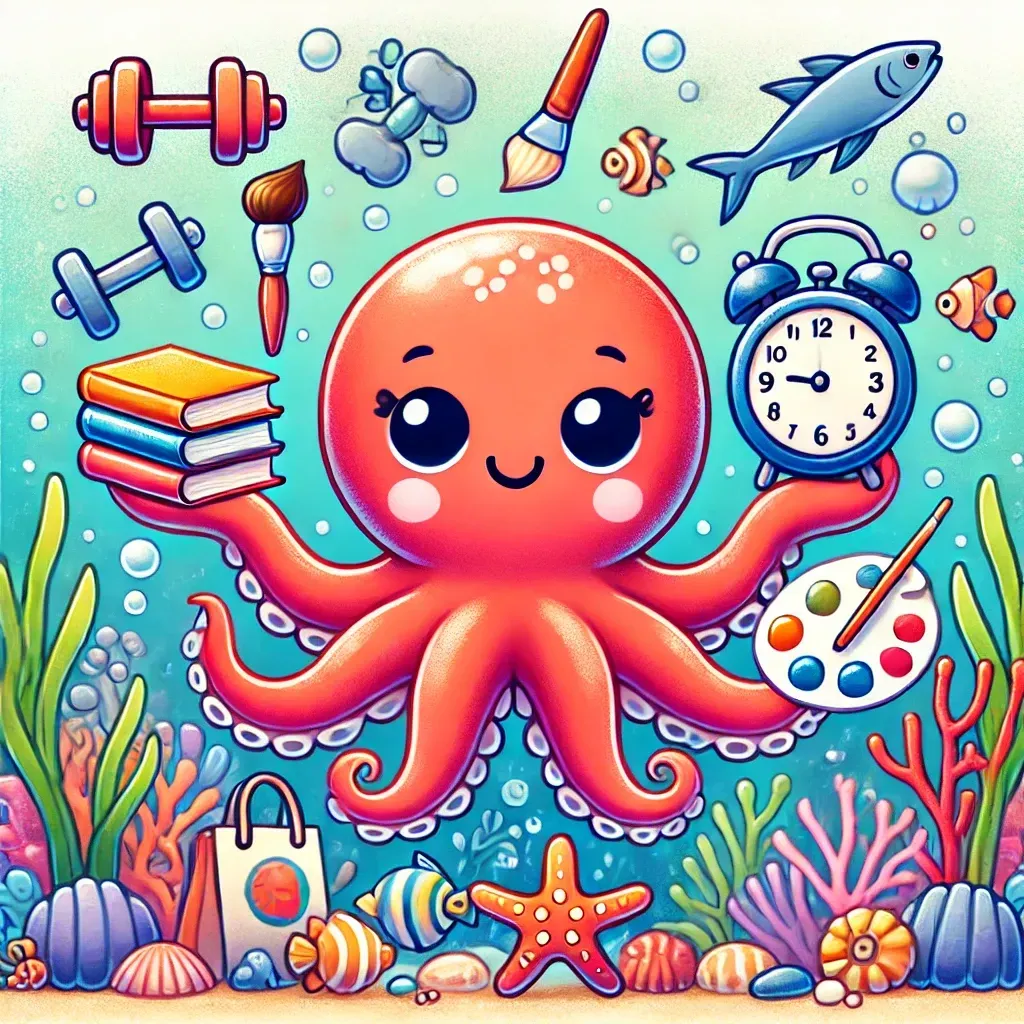Navigating the Digital Maze: A Guide to ADHD and Technology Use

- Digital Distraction and ADHD Challenges: The allure of technology, especially with apps designed to be addictive, significantly exacerbates symptoms of distractibility and impulsiveness in individuals with ADHD. The phenomena like "doomscrolling" and the ease of losing track of initial intentions due to digital distractions highlight the need for strategies to manage attention and focus effectively in the digital age.
- Importance of Digital Mindfulness: Taking proactive steps towards digital mindfulness, such as deleting highly distracting apps, curating digital content that adds value, and incorporating practices like morning meditation, can significantly mitigate the negative impact of technology. This approach fosters a more intentional and productive interaction with digital tools, turning them into assets rather than obstacles.
- Strategies for Positive Technology Use: Implementing mindful technology use practices, like setting clear goals for tech usage, establishing digital detox periods, and customizing notifications to minimize distractions, are crucial for individuals with ADHD. Employing ADHD-friendly apps and technologies designed to support focus and task management can also transform technology from a source of distraction to a powerful aid in managing daily challenges.
- Technology as a Tool for Empowerment: Despite its challenges, technology holds the potential to empower individuals with ADHD by providing innovative solutions like therapeutic video games and productivity apps tailored to enhance focus and cognitive control. By embracing a mindful approach to technology use and recognizing the potential for digital tools to support rather than hinder personal and professional growth, individuals with ADHD can navigate the digital landscape more effectively, turning it into a pathway towards a more focused, fulfilled, and balanced life.
Navigating the Digital Maze: A Guide to ADHD and Technology Use / Learn How to Wield Technology as a Tool for Balance, Not a Weapon Against Your Focus.
For those with ADHD, the allure of technology can often exacerbate symptoms of distractibility and impulsiveness. Social media platforms, such as Instagram, are designed to be addictive, leveraging UX designs and algorithms that feed on our attention spans. The endless cycle of scrolling, or "doomscrolling," can be particularly detrimental, leading to wasted time, increased anxiety, and a sense of overwhelm. Similarly, the scenario of grabbing a laptop to complete a specific task, only to find oneself hours later having done ten different, unrelated things, highlights the challenge of digital distraction. The initial intention fades into the background as each new tab or notification pulls attention further away from the goal.
This digital distraction is not merely about wasted time; it's a drain on the mental energy of individuals with ADHD, making it harder to regain focus and momentum towardtowards their original objectives. The immediate gratification offered by technology often overshadows more meaningful but less stimulating activities such as meditation, cleaning, or even spending time with people in real life - leading to a cycle of procrastination and unproductivity. Let’s embark on a journey of navigating the delicate balance between digital convenience and the quest for mental well-being.
The Dichotomy of Digital Life
Living with ADHD in the digital age is akin to navigating a labyrinth, where every turn offers a mix of allure and distraction. The design of modern apps, with their infinite scrolls, notifications, and personalized algorithms, plays into the hands of ADHD symptoms. Developers have masterfully crafted these platforms to be addictive, tapping into our brain's desire for novelty and immediate reward. This programming does not just fuel ADHD-like behaviors; it exacerbates them, creating a loop of constant distractions that challenge our executive functions.
The struggle with executive function is a core aspect of ADHD, impacting planning, focus, and impulse control. With its endless streams of content, modern technology Modern technology, with its endless streams of content, makes it incredibly challenging to navigate daily tasks without falling into a "black hole" of procrastination and avoidance. This digital environment can deepen the difficulties of managing time, maintaining focus on single tasks, and resisting impulses, leading to a mindset that mirrors and, in some cases, may exacerbate ADHD symptoms.
A Personal Journey Through Digital Mindfulness
My relationship with technology has been both a source of strife and a catalyst for self-improvement. Recognizing the need to mitigate the impact of digital distractions, I embarked on a journey of digital mindfulness. My steps were:
- Deleting apps that I am guilty of doom scrolling and finding no value. This led me to deletedeleting Instagram from my phone. It was a was a pivotal step, a conscious choice, to interrupt the cycle of mindless opening the app and endless scrolling. By accessing social media through a web browser, I createdintroduced a layer of friction that allowed me to engage more intentionally.
- I worked to curate my digital intake to ensure that I was looking at content that truly mattered to me. For me, that led to me replacing Instagram with LinkedIn. With the help of my partner and friends, I found thought leaders who provided content in a more ingestible way, inspiring way. I was also able to connect and keep in touch with friends and family through their career and aspirations.
- I meditate in the morning. This act of self-preservation extended into curating my digital intake through the help of my partner and friends, who shared content that truly mattered to me. I replaced Instagram with LinkedIn as emerged as an unexpected refuge, a space where learning and professional growth took precedence over the noise of traditional social media. Before the day's digital immersion, I found solace in morning meditation, grounding myself in intention and clarity, setting the tone for a mindful engagement with technology.
Additional Strategies for Harnessing Technology Positively
To leverage technology as a tool for managing ADHD rather than a source of distraction, individuals can employ several strategies:
- Mindful Usage: Being intentional about technology use, setting specific goals for each session, can help mitigate aimless browsing.
- Tech Hygiene: Implementing periods of digital detox and establishing tech-free zones or times can help reduce the temptation to default to digital distractions.
- Utilizing ADHD-friendly Apps: Opting for apps designed with ADHD in mind, such as those that limit time on certain websites or help organize tasks into bite-sized, achievable goals.
- Customizing Notifications: Tailoring notification settings to minimize interruptions can help maintain focus on tasks at hand.
- Seeking Out Therapeutic Technologies: Exploring new technologies designed to aid ADHD management, such as cognitive training games, can provide alternative treatment options.
Embracing Technology as a Tool for Empowerment
Despite the pitfalls, I remain optimistic about the role of technology in managing ADHD. Innovations like Akili Interactive's therapeutic video games represent a promising frontier where technology is not merely a source of distraction but a means of support. These advances offer alternatives to conventional treatments, harnessing the engaging power of games to improve attention and cognitive control.
Moreover, digital tools and apps can be allies in navigating the ADHD experience when used judiciously. To-do list apps, for instance, embody the double-edged nature of technology: they can overwhelm or empower, depending on how they're used. Tailoring these tools to serve my needs, customizing notifications, and setting boundaries around technology use have been crucial strategies in leveraging technology for my benefit.
The journey through the digital landscape as an individual with ADHD is fraught with challenges, yet it is also ripe with opportunities for growth and empowerment. By adopting a mindful approach to technology, and recognizing its potential to both distract and support, we can navigate this landscape with intention and purpose.
This narrative is not just my own but a shared experience among many. It's a call to engage in self-reflection and growth, to explore how we can use technology as a tool for empowerment rather than a source of endless distraction. In embracing both the vulnerabilities and strengths that come with ADHD, we can transform our digital interactions into a pathway towardtowards a more focused, fulfilled, and balanced life.




